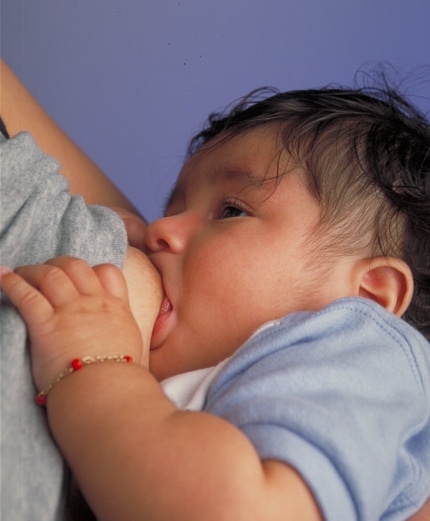Breastfeeding or nursing is the feeding of babies and young children with milk from a woman’s breast. Health professionals recommend that breastfeeding begin within the first hour of a baby’s life and continued as often and as much as the baby wants. During the first few weeks of life babies may nurse roughly every two to three hours. The duration of a feeding is usually ten to fifteen minutes on each breast. Older children feed less often. Mothers may pump milk so that it can be used later when breastfeeding is not possible. Breastfeeding has a number of benefits to both mother and baby, which infant formula lacks.
Breastfeeding decreases the risk of respiratory tract infections and diarrhea, both in developing and developed countries. Other benefits include lower risks of asthma, food allergies, celiac disease, type 1 diabetes, and leukemia. Breastfeeding may also improve cognitive development and decrease the risk of obesity in adulthood. Mothers may feel pressure to breastfeed; however in the developed world children generally grow up normally when bottle feed.
Benefits for the mother include less blood loss following delivery, better uterus shrinkage, weight loss, and less postpartum depression. Breastfeeding delays the return of menstruation and fertility, a phenomenon known as lactational amenorrhea. Long term benefits for the mother include decreased risk of breast cancer, cardiovascular disease, and rheumatoid arthritis. Breastfeeding is often less expensive than infant formula.

Photo: Breastfeeding infant, by Ken Hammond (Public Domain)
Breastfeeding. (2016, October 10). In Wikipedia, The Free Encyclopedia. Retrieved 07:14, October 10, 2016, from https://en.wikipedia.org/w/index.php?title=Breastfeeding&oldid=743573656
